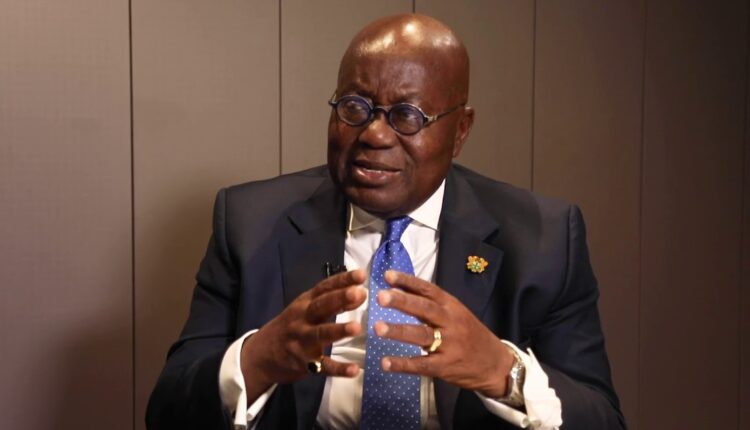Gov’t to tackle labour unrest with Single Spine Pay Policy Review
President Nana Akufo-Addo is optimistic that a second look at the Single Spine Pay Policy (SSPS) structure will address the conditions of public sector workers to prevent agitations and frequent strikes.
A National Tripartite Committee has been tasked to review the policy, with the report expected to be ready in the coming months.
Addressing the public on May Day, President Akufo-Addo noted that he was happy that the committee had been constituted to advise the government accordingly.
“The goal is to find out whether the Single Spine Pay Policy is living up to expectations and, if not, find a way forward. I hope that the report, which is expected to be ready in July, will help to put an end to most of the unrest we see on the labour front involving public sector workers,” he explained.
The President further urged all government employees “to work hard to increase productivity so we can increase salary levels, and provide the basis for paying a ‘Living Wage’.”
He was, however, concerned that the government spent GH¢31.7 billion to pay for the compensation of employees, that is, wages and salaries, pensions, gratuities, and social security.
This was paid out of a tax revenue of GH¢56.5 billion.
“Thus, payment for compensation for 700,000 public sector employees, alone, absorbed fifty-six per cent (56%) of tax revenues in 2021.
“This ratio is well above the ECOWAS threshold of thirty-five per cent (35%), and above the sub-Saharan Africa average of forty-three per cent (43%),” he lamented.
Meanwhile, the committee is expected to identify the key challenges in the implementation of the SSPP, including linking performance to pay, market premium and administration of salary differentials in the
The Committee was also tasked to make proposals on the policy, estimate its cost implications, advise the government on implementing the recommendations and consider any other matter consequential to the subject.
The review will, among others, consider productivity, comparative salary standards in the private sector, and international salary standards as a guide to ensure uniformity in public sector pay.
The review of the more than a decade old policy has been occasioned by labour unrest, mostly from health and education sector workers over pay disparities in the public services.
The Government started implementing the pay policy in 2010 to regulate the payment of public service workers’ salaries and guarantee better public sector pay.
However, workers have been calling for a review of the policy for several months, indicating it had not served its purpose as there were still disparities in the salary among public sector workers.
The President, Nana Addo Dankwa Akufo-Addo, in 2018 admitted to the need for equity in the public sector salary structure and hinted at a review of the SSPP to address challenges encountered in its implementation.


